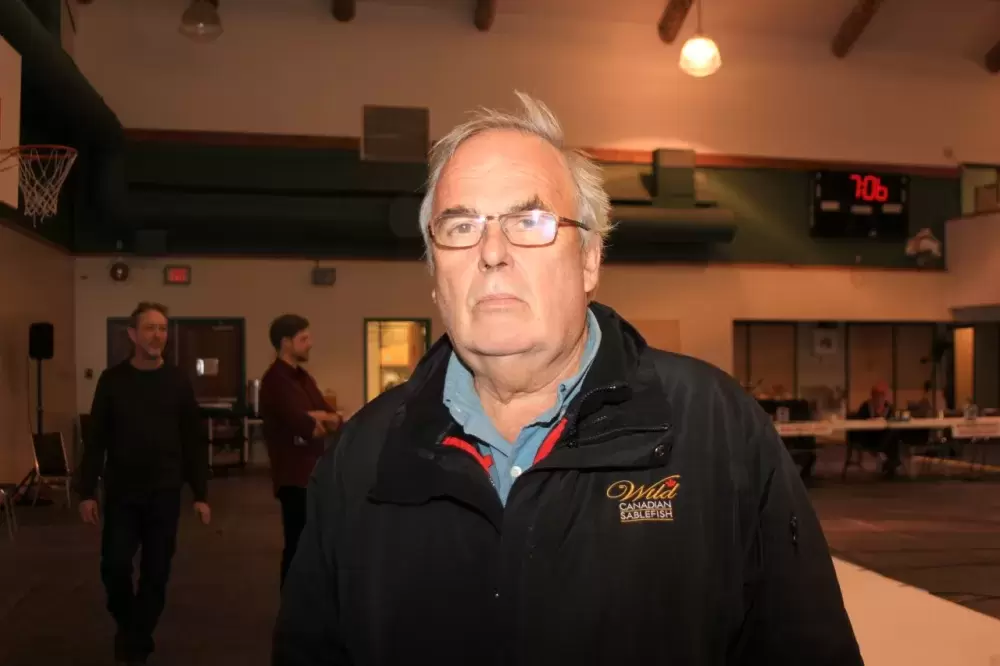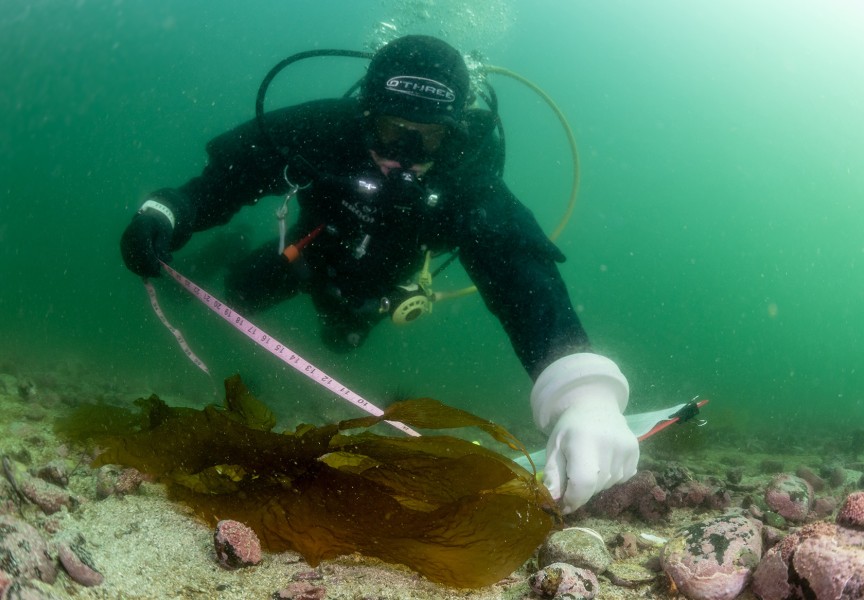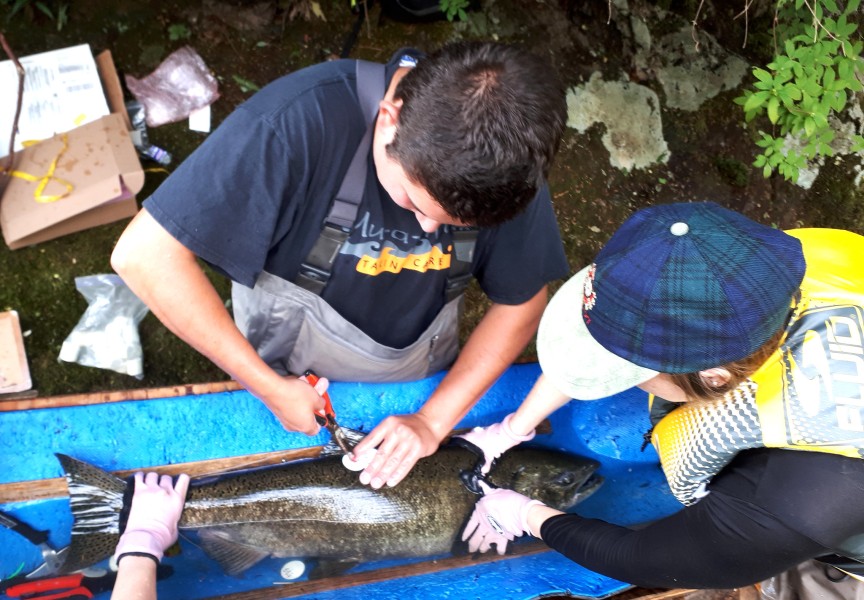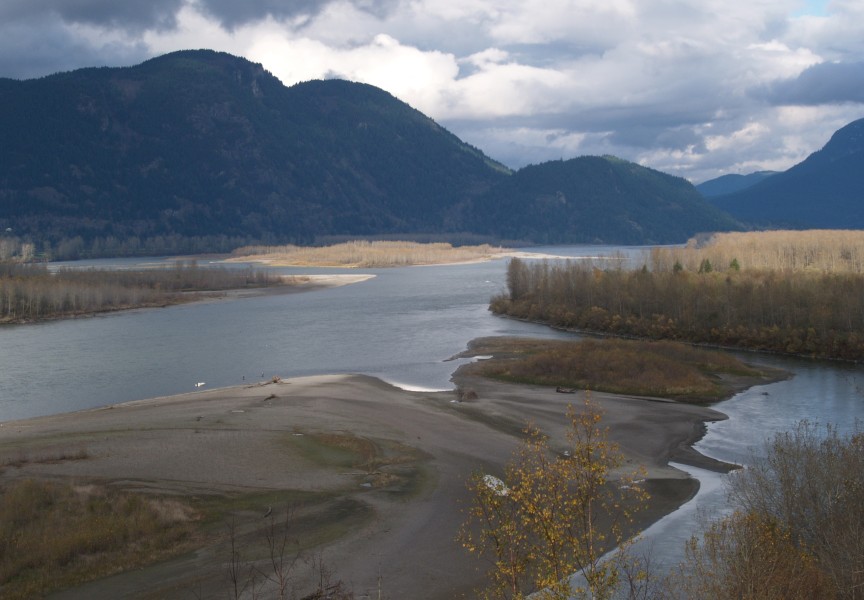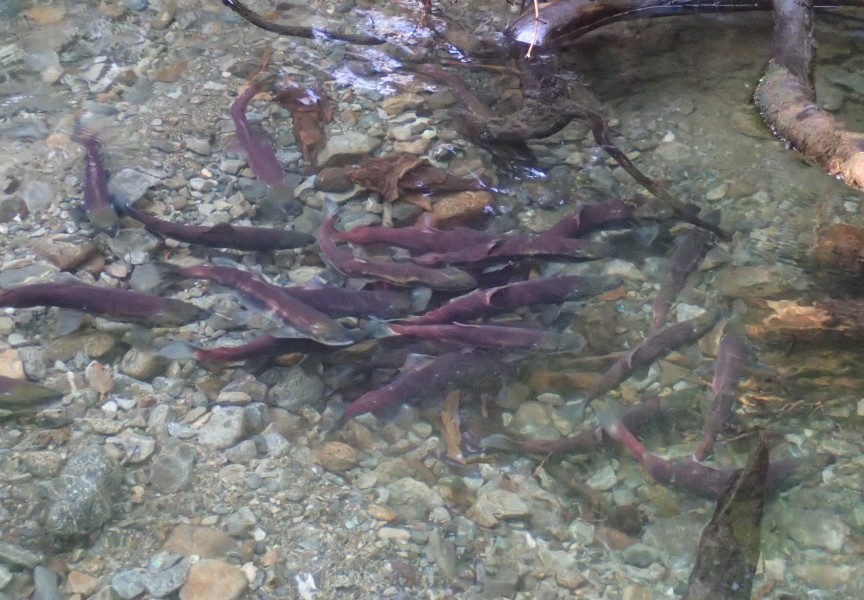A cooperative group of regional stakeholders would better manage fishery resources on the west coast of Vancouver Island, says a commercial fisherman with a half century of experience on the water – but such a collaborative process would require the federal government to give up some control.
As the descendent of generations of fishermen, Dan Edwards has made a living on the B.C. coast for his whole adult life. In fact the 68-year-old started fishing at the age of seven with his father as he grew up in Ucluelet.
Over his life Edwards has seen the number of commercial fishing boats on the west coast of Vancouver Island decline to a small fraction of what it once was. Now the industry out of Ucluelet has been reduced to a mere handful of fishers.
“It used to be the third largest troll port in Canada,” said Edwards. “The Government of Canada has very deliberately destroyed the small-fleet boats in these communities.”
Allocation numbers issued by Fisheries and Oceans Canada for the west coast of Vancouver Island over the next year indicate the situation could become more meagre.
“There were 26,000 pieces this year for chinook in the commercial and troll fishery; next year they’ve been told there’s going to be 8,400 pieces. It’s the lowest ever,” said Edwards, noting that a DFO allocation of 50,000 has shown a preference to recreational boats. “They’ve reallocated all the fish to the sports fisheries.”
To better handle the resource Edwards has advocated that those with a vested interest need to sit down and work out a collaborative approach. This requires a partnership including commercial fishers, First Nations and levels of government – but such a regional management board goes against what federal authorities want, said the fisherman.
“This whole idea of having regional management - where there’s areas along the coast that are doing management that’s not centralized - that’s not what Ottawa wants,” explained Edwards. “They want to have control, and they saw this as loss of control.”
This struggle led Edwards to go on a 59-day hunger strike in 1999, after negotiations with federal authorities to participate in a regional management board had stalled. That year the Fraser River sockeye fishery collapsed, driving Edwards to highlight the need for the DFO to participate on a co-management board with other stakeholders.
“When the Fraser collapsed, there was a huge move to try and compensate or make some structural adjustment to the fishing industry,” he said. “Guys were relying almost totally on that one fishery, and (DFO) refused to budge on it…they wouldn’t provide any emergency relief.”
He fasted on a boat in Vancouver’s False Creek, living on a diet of water with lemon and some vegetable extract.
“It wasn’t an easy thing to do,” he said. “If you go on a hunger strike without water, you can last two weeks. If you go with water, you’ll last 70 days, but you’ll do all kinds of damage to your organs.”
After losing 50 pounds, Edwards’ hunger strike ended when Canada’s Fisheries Minister Herb Dhaliwal agreed to review the consultative process. An independently facilitated co-management board for fisheries was set up in 2001, but the federal government’s resistance to this approach has continued to this day, said Edwards. This is shown in the ongoing dispute over how Canada can honour the fishing rights of five Nuu-chah-nulth nations since the Ahousaht et al. Supreme Court of Canada ruling in 2009.
“From the point of view of actually husbanding and stewarding salmon resource and salmon streams in the habitat side of it, I don’t think there’s much difference between what the Nuu-chah-nulth want and what the commercial fishing industry wants,” said Edwards. “I think we’re very much aligned.”
For his dedication to advocating for a more collaborative approach to stewarding fisheries, Edwards was formally recognized by Nuu-chah-nulth leaders at the Council of Ha’wiih Forum on Fisheries in October. Nuchatlaht representative Archie Little said that in the past Edwards stood apart from other non-Aboriginals in his belief that Nuu-chah-nulth-aht can own and manage their own fisheries.
“We had one friend that stood up and spoke loud, and spoke clear and never wavered in his support for Nuu-chah-nulth being a force in resource management, resource ownership,” said Little. “Dan had such a belief that we were doing the right thing that he went on a hunger strike.”
Ahousaht delegate Cliff Atleo noted that Edwards has shown a deep understanding of the Nuu-chah-nulth concept of isaak, meaning respect.
“He had teachings and values that we have about looking after things,” said Atleo. “At some point the government needs to shake loose their arrogance and take a look at the values and teachings we have about how to look after things - how to actually look beyond one generation and look down seven generations.”
“The uphill battle that’s been in place ever since the board was created has been actually to get governments to sit down collectively and work through these issues,” noted Edwards. “We need to sit down and figure that out, because if we don’t figure it out so that we can live side by side, then there’s going to be battles. There’s going to be battles on the water and in the communities. We don’t want that.”

